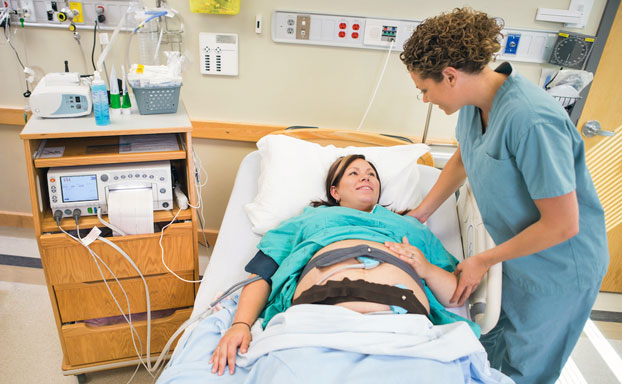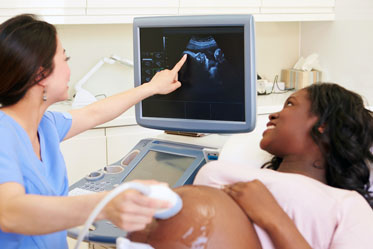Fetal surveillance is a broad term that refers to a variety of non-invasive tests that may be administered during a pregnancy in order to evaluate whether or not a baby is thriving in utero. These tests are typically ordered by obstetricians for women who are experiencing high risk pregnancies, and they are an additional means by which to manage and monitor both the mother’s and baby’s health and well-being.
What is Fetal Surveillance?
Fetal surveillance tests are a series of assessments that monitor a pregnancy when certain medical conditions are present or complications arise. Factors that can lead to a pregnancy being considered as high risk are diabetes, high blood pressure, multiple gestation (twins or more), post-term pregnancies (when gestation goes beyond 42 weeks), or women with pre-existing health conditions or previous high risk pregnancies.
However, if a physician orders fetal surveillance testing, it is not necessarily a cause for alarm. These tests should be regarded as an extra measure of vigilance for a mother and baby and are designed to ensure that the pregnancy and birth are as healthy and safe as possible.

What Are Fetal Surveillance Tests?
The types of tests a pregnant woman can receive as part of fetal surveillance will depend on each specific case. Assessments may include ultrasound, non-stress tests (NSTs), contraction stress tests (CST), and biophysical profiles (BPP).
 Ultrasound
Ultrasound
Ultrasounds performed in the case of fetal surveillance may be given periodically throughout a pregnancy and are often used to monitor the development of the fetus and the intrauterine conditions.
Non Stress Test (NST)
This test measures a baby’s heart rate and fetal movement over a specific period of time without any external factors being applied. For the NST, the fetal heart rate is monitored externally with a sensor that is attached to a belt and placed on the mother’s abdomen. This test poses no risk to the mother or child.
Contraction Stress Test (CST)
A Contraction Stress Test measures how a baby’s heart rate responds when the uterus contracts. As with the NTS, this test is administered with a belt sensor, but unlike the NST, contractions are physically or chemically induced and measures are taken under those altered conditions.
Biophysical Profiles (BPP)
The BPP uses a combination of ultrasound and NST to determine a baby’s fetal heart rate, breathing and body movements, fetal muscle tone, and the amount of amniotic fluid around the baby.
Who Should Receive Fetal Surveillance?
Fetal surveillance is typically only necessary in certain cases of high risk pregnancies. There is usually no need for such monitoring in low risk pregnancies and women should not feel the need to request these tests since fetal surveillance will only be administered if a doctor sees a need for them.
However, fetal surveillance may be required at any time during the pregnancy if complications should arise in an otherwise normal pregnancy. For instance, a decrease in a baby’s movements over a specific period of time may warrant a period of testing. Likewise, fetal surveillance may be curtailed if a baby is responding well, but if the baby does not respond to the monitoring as expected, additional recommendations will be made and measures taken.
Monitoring Mother and Baby’s Well-being
The doctors and staff at Kansas City ObGyn share the same goal with the new mothers we serve. It is our desire to see healthy pregnancies through to full term deliveries and fetal surveillance is sometimes a necessary step towards reaching that goal. We understand that it can be worrying to have a pregnancy categorized a “high risk” and to need special tests to ensure the pregnancy progressing as expected, but fetal surveillance should be cause for comfort since they allow our obstetricians to closely monitor and care for mother and child at any point throughout a pregnancy.
If you have any questions about your high risk pregnancy or the need for fetal surveillance testing, please contact Kansas City ObGyn today at This email address is being protected from spambots. You need JavaScript enabled to view it. or 913-948-9636.






